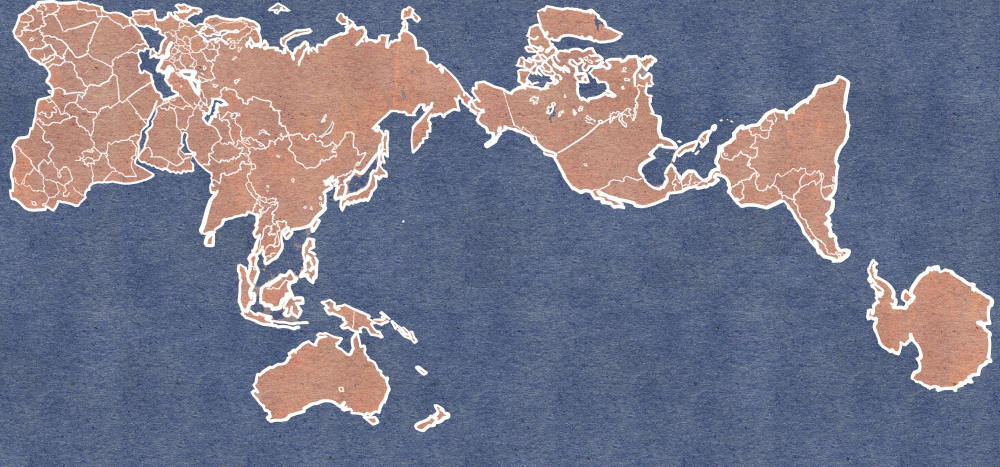Lessons from the First Nations of Abya Yala
Evo Morales is the first aymara to rise to Bolivian presidency, and Bolivia along with Mexico the first Latin American countries to have an indigenous president. In the Plurinational Republic of Bolivia, the majority of population identify with some of the surviving major Amerindian folk groups with mestizos and descendants of European immigrants in minority. However, in Bolivia and a major part of Americas, it is not the mestizos nor the first nations, but the descendant of the pale immigrants with unknown guns and new diseases, who still tend to be over represented in the higher social stratas and positions of power.
In general, this inequality seems a relic of the notorious caste system erected by the Spanish viceroyalties. Yet, in many cases, it also is due to the faults of our time, like disrespect of ILO Convention 169 concerning indigenous and tribal peoples, or outright oppression like in Pinochet’s Chile. Against this background Bolivia appears to present us an example of rise of the subjected majorities (in plural) in the formation of a pluralist society.
Unbelievably, this is not the most important thing that we may learn from studying Bolivia. An even more important thing may actually be an age-old philosophy, which not only is Bolivian but forms part of a shared ancestral heritage of the first nations of the whole of Abya Yala, the Americas[1]. In Aymara, the native toungue of Evo Morales, it is called suma qamaña, in quechua sumak kawsay, and in Mapuche kyme mogen[2]. It means ’to live well’, and more specifically, a life, state of being, and coexistence of the kind that corresponds to the attributes of plentitude, excellence, beautiful and sublime.[3]
Suma quamaña is a way of life, worldview, and a political program. As a way of life and philosophy, it embodies an idea of harmony between all the existing, a kind of harmony that implies unition and connection even if the objects of existence seem separate. Our sense of individuality arising from our perceptive capacities and our subjective desires does not break our bonds with the father cosmos or the mother earth, Pachamama, nor with our proper communities. If so would happen, however, the fault lies within our choices or in us breaking the harmony. Nevertheless, it should not be broken. The sense of harmony should be cherished in all its forms and aspired in all our actions.
How gravely this communitarian philosophy contradicts individuality and freedoms of the Liberal Order becomes clear from its conception of community. Community is conceived of as compound of us, and we is defined as ”the mountains, flowers, insects, stones, rivers, everything”[4]. In practical terms, suma quamaña implies that the welfare of a community is defined by the welfare of nature surrounding it and by the welfare of its members. In this culture of sharing, richness and property are comprehensive concepts, which embody sharing and caring. Indeed, richness for the sake of possessing either material luxuries or power is a result of a rather condemnable vice – vice because it brakes the unition with our human communities and the Pachamama.
The concept of ’economic development’ is also at odds with suma quamaña: how could people increase their own possessions by harming their mother (the earth), and their brothers and sisters (the members of the animal and vegetable realms)? Suma quamaña thus implies that the earth is nobody’s possession but rather that we belong to the earth[5].
These ancestral ideas from the peoples of Abya Yala, while at odds with capitalism, communism and the culture of consumerism, still have much to give to the children of Pachamama. We have more mouths to feed, but we think less about sharing. Global power transformations have already created a immense and still rising middle class in Asia, but instead of spending less, we compete more. We cut down rainforests to fuel our cars, kill our brothers and sisters for oil to further harm the Earth, and pride ourselves with the level of development that has costs the lives of innumerable brothers and sisters from the animal and vegetable kingdoms. And now that we have finally commenced to think about perhaps restraining ourselves just a little, the leader of the free world resigns from these attempts.
Suma quamaña is a philosophy for a simple live. It resonates with the teachings of Jesus, Buddha or Gandhi, who ones said, we should ”learn to live simply, so that others may simply live”.
Marko Juutinen
Image: Karstein Volle
[1] Fernando Huanacuni Mamani, 2010, 27, Vivir Bien/Buen Vivir, Filosofía, políticas, estrategias y experiancias regionales, La Paz: Institute International de Integración.
[2] Supra 37, 39.
[3] Supra 15.
[4] Supra 77.
[5] Supra 71.



